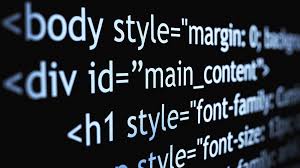What Would MLK Say About Digital Inequity?

Dr. Martin Luther King, Jr. was one of the greatest civil rights activists of all time. He fought for equal access to opportunities for all Americans, regardless of race. One major issue of his time was equality in education. Though education looks very different than it did in Dr. King’s time, injustice and inequality still exists in schools.
During the Civil Rights Era, activists like MLK were fighting for black children to be able to attend the same schools as white children. At the time, the laws of the United States said that schools could be segregated by race, so long as they were equal in the quality of education they provided. This was known as “separate but equal.”
However, as Dr. King and others knew, there really is no such thing as separate but equal. Schools for white children had better facilities, newer textbooks, and more money. Martin Luther King, Jr. believed that all children should have the same resources in their schools. He was ultimately assassinated for his part in the Civil Rights Movement.
But what if Dr. King was still alive today? What would he think of our education system? And what would he say about digital inequity?
Digital inequity is the unequal distribution of digital resources and availability. This inequality disproportionately affects families of color and families living below the poverty line. Black and Latino students are far more likely to live in homes without internet access, as are students in families with an annual income below $50,000.
Without access to the same resources, these students cannot get the same education as their wealthier White peers. Just as MLK fought against separate but equal schools in the 1950’s, activists today must fight against an unequal system.
If MLK were alive today, he would undoubtedly tell us we must ensure that low-income children of color have the same digital tools as other children. Digital inequity, while it may not sound like a civil rights issue, is indeed. The fight for equality is about much more than allowing students of different races to attend school together. At its heart, it’s really about giving everyone equal opportunities and equal access to resources that will help them succeed.
Perhaps we need a modern-day MLK to address the issue of digital inequity. Otherwise, the digital divide will continue to be another way that poor students of color are placed at a disadvantage.
What do you think MLK would say about digital inequity?




